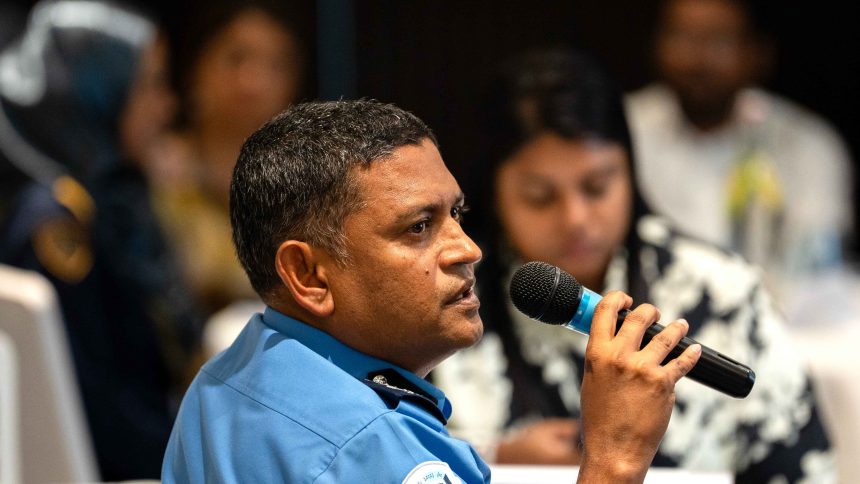Yesterday panel discussion at the ‘Remand Forum’ organized by the Prosecutor General’s Office, Commissioner of Police Ali Shujau emphasized the dangers associated with releasing individuals accused of serious crimes before their trials. He highlighted that such actions could jeopardize both societal safety and the integrity of the judicial process.
Commissioner Shujau pointed out that past instances of pre-trial releases have led to adverse effects, including potential harm to victims and undue influence on legal proceedings. He stressed the necessity of a robust legal framework to monitor released individuals, suggesting measures like electronic tagging to ensure compliance.
“We can monitor them by tagging after making changes to the laws. Without a legal framework to monitor, the purpose of arrest won’t be fulfilled. It’s not right to release people at this time,” stated Commissioner Shujau.
He further detailed that current detainees include suspects involved in drug-related offenses and sexual abuse cases. Releasing such individuals, he argued, could compromise trials and endanger victims.
The Commissioner also assured that the police force is committed to expediting investigations, promptly forwarding cases to the Prosecutor General’s Office to facilitate swift judicial decisions.
This stance underscores the ongoing debate in the Maldives regarding pre-trial detention practices. While the constitution mandates that pre-trial detention should be an exceptional measure, reports indicate that nearly 30% of detainees are held pre-trial, often for extended periods. This has led to concerns about prison overcrowding and the need for alternative measures.
Efforts are underway to address these challenges. The United Nations Office on Drugs and Crime (UNODC), in collaboration with Maldivian authorities, has been working to implement non-custodial measures to reduce prison overcrowding and promote alternative sentencing.
The dialogue initiated by the ‘Detention Forum’ reflects a broader commitment to balancing public safety with the rights of the accused, ensuring that the justice system operates fairly and effectively.




